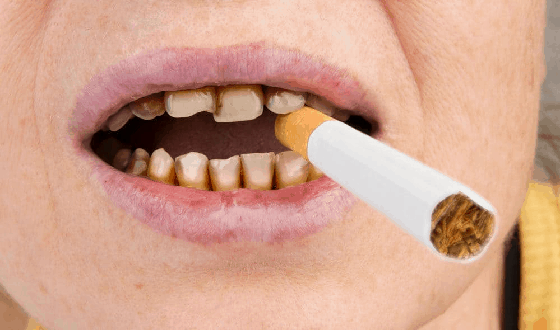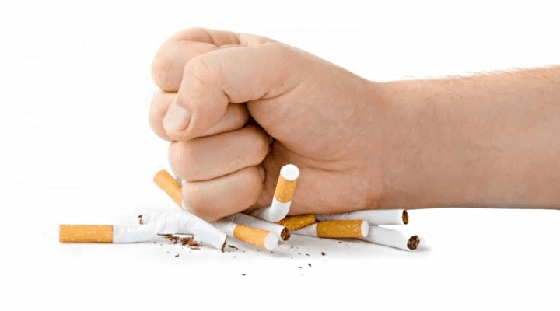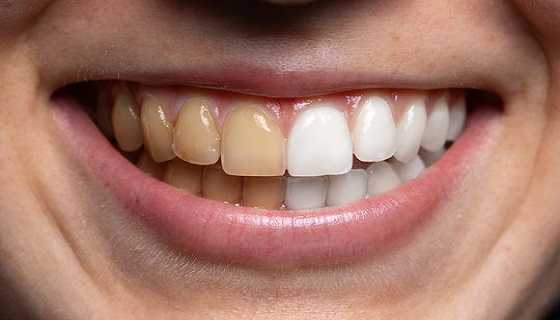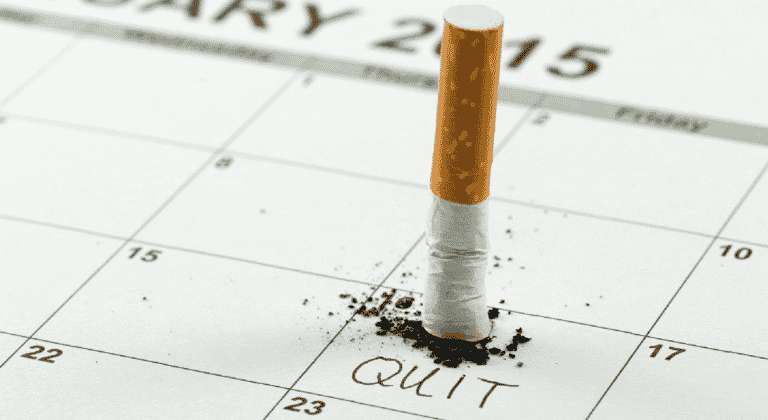When you make a list of different factors that affect dental health, you can find a lot of factors. However, we will see particularly about the effect of smoking on dental health. It may or may not like the people who smoke a lot that smoking has a bad effect on dental health.
In fact, on most of the smoking packets, a danger sign on health is mentioned. However, apart from overall health, smoking also has adverse effects on teeth. Consuming Tobacco causes many health complications.
Most of the people are aware of diseases such as lung cancer or breathing related issues. Along with this, it may create an adverse effect on your oral health.
How does smoking affect my oral health?
- Teeth wear down faster: Any type of tobacco such as cigars, chewing tobacco, snuff and unprocessed tobacco contain very small particles which are abrasive to teeth. When this tobacco particles mixed with saliva and chewed, it forms an abrasive paste, over time it will wear your teeth off.
- Fewer dental treatment options: Smoking causes reduced blood flow in your mouth and it will increase bacteria and inflammation. This condition makes it difficult to replace lost teeth. For example, replacement options such as implants and bridges may not be a good repair option. Because your surrounding teeth and jawbone need to be of the strength to support the artificial tooth but due to the infection, they may be weakened.
- Gum disease is harder to treat: Smoking harms your immune system by decreasing its ability to do its function. So, if you are a smoker being treated for gum disease, it might be more difficult to fight the problems associated with gum disease. Smoking also curbs the growth of blood vessels, it slows down the healing of gum tissue after oral surgery.
- More likely to get sick: Tobacco decreases the body’s ability to fight infection, including your mouth and gums. A simple infection can also get worse, like sepsis. Smokers have more chances to develop gum disease than non-smokers.

Effects on Teeth and Oral Cavity:
One of the most immediate problems observed amongst most of the smoker’s teeth is a brownish and yellowish layer on the teeth. Along with it, some people also have stains on their teeth. Some teeth are heavily stained due to excessive smoking habits.
Apart from these factors, the bad breath is the obvious bad effect which is seen after smoking and also prevails a long term after smoking. In fact, these immediate effects are enough to show the problems of smoking on teeth.
Smoking causes inflammation around the tooth because this periodontal disease is one of the most significant risk factors. Infection can affect the tooth bone and other supporting structures, and if the infection stays a long time in your mouth it can result in tooth loss.
Tooth cavity: Plaque formation is an inevitable side effect of tobacco consuming that is the first stage of the cavity. If the plaque continues to stay on your teeth it attracts bacteria.
This process penetrates in the inner layer of the tooth over time and ultimately causes cavity. In addition to this, gum recession can cause uneven margins on crowns and other restorations.
Here are some of the major bad effects on Smoking and chewing tobacco on our oral health.
- Bad Breath
- Tooth yellowing
- Periodontal disease
- Oral Cancer
- Slow healing after
- Oral surgery
- Plaque and tartar on
- the teeth
- Leukoplakia
- Loss of bone within the jaw
- Decreased Sense of Taste

What are the long-term bad effects of smoking on teeth?
We have seen that teeth discoloration and bad breathing were the immediate bad effects of smoking on teeth. However, smoking has some long-term bad effects on dental health which cannot be seen in a short period, it can be seen after a longer duration. Smoking leads to the problem of gum disease like Gingivitis and Periodontitis.
In some cases, there is erosion of the bone under the infected gums which makes the corresponding tooth lose. Periodontitis disease has other bad effects on health like stroke risk, diabetes, and also a problem during pregnancy.
Years of smoking damages the blood vessels, which makes it difficult to health the dental issues when the teeth are removed, putting the dental implant, and makes the dental healing process slow.
Treatment of the smokers’ teeth:

Studies have found that compared to non-smokers, smokers have high chances of getting some or the other gum disease problems. Also, the people who keep smoking even during the treatment process will have very fewer chances of healing faster. There is no full-fledged solution for the dental problems arising due to heavy smoking.
Even specialized toothpaste or proper mouthwash cannot eliminate the problem of gum disease. Some of the cosmetic treatments for the dental problems also do not work in a proper way to give the desired results.
Basically, smoking reduces the blood flow towards the gums which is one of the major factors for gum problems. Proper blood circulation is essential in maintaining a proper dental condition.
Regular check-ups of dental health are necessary here when you are a habitual smoker. It will give you proper insights about the possible dental problems that you might be going through.
Smoking Counseling and Your Dentist
Dentists play an important role in tobacco cessation and can increase your rate of successfully quitting. They will analyze your oral health and treat you for the present problem. He/she can make a plan for you to quit tobacco.
Benefits of tobacco counseling and cessation
Tobacco smoke contains a toxic mix of more than 7,000 chemicals; hundreds are harmful, and about 70 can cause cancer. It increases the risk of serious health problems, diseases, and death.
People who stop smoking greatly decrease their risk of disease and early death. The health benefits are greater for people who stop at earlier ages, however, you are never too old to quit.
Steps to Take
Experts say three keys for successful tobacco cessation. All health care providers, especially your dentist, can provide support and resources. These five steps are:
- Get ready by setting a date to quit: All you need to do is your mental preparation to quit. For this, set one date from where you want to begin your healthy journey.
- Seek support from your friends and family: Along with dentists your family and friends will help you to come out from tobacco usage.
- Practice behavioral distractions: When the urge to smoke comes up you have to learn how to stop this distraction. It will help to quit permanently.
How can my dentist help me?
A visit to the dentist is an important first step. The dentist will have an important plan that starts the process. Everyone wants white pearly teeth and a healthy mouth. With the help from your dentist, you can achieve all of these. It’s never too late to quit being healthy.
How would dentists treat me?
If you are consuming tobacco and if you find any of the related symptoms you can consult the dentist. You need to disclose your full medical history. Along with this, your dentist may ask you the form and the amount of the tobacco you are using. After a proper mouth examination, he/she will tell you how the condition will be cured.
He will recommend a treatment for you. After this a suitable treatment will be discussed with you and you can start the advised treatment. Along with this, your dentist will assist you in tobacco cessation.
Expert Opinion
Dr. Zita Antao Dental Director of Sabka dentist says "Stress to some extent is one of the natural things for most people, more stress can affect general and oral health. Ensure that you take lesser stress under any condition. Also, maintain good oral habits to make sure that the Oral health is fine. Consult a dental expert to keep your oral health better."





